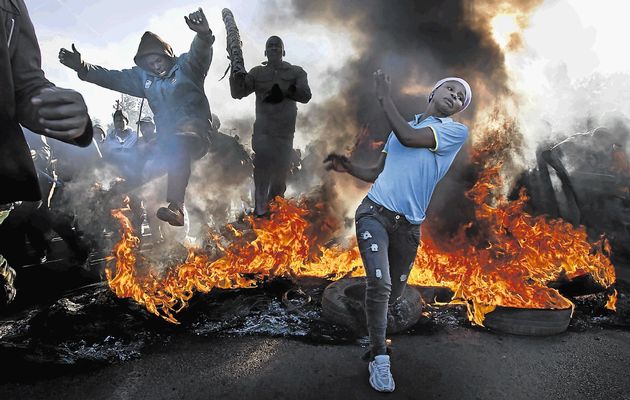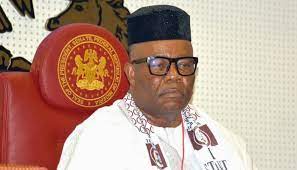Socio-Economic Rights and Accountability Project (SERAP) has sent an open letter to His Majesty, King Mswati III of Swaziland, and Chairperson, Southern African Development Community (SADC), urging him to “convene an emergency summit of the SADC heads of state and government to discuss the persistent xenophobic attacks on Nigerians and other foreign nationals living in South Africa.”
The organization also urged SADC to “Use the Organ on Politics, Defence, and Security Cooperation within SADC to immediately set up an independent and impartial body to investigate all acts of xenophobic attacks on Nigerians and other foreign nationals. The investigation’s findings and recommendations should be made public, suspected perpetrators brought to justice and victims must enjoy the right to an effective remedy and reparation.”
In the letter by SERAP Executive Director, Adetokunbo Mumuni, dated 24 February 2017, the organization protested that, “persistent and longstanding xenophobic attacks on Nigerians and other foreign nationals, the complete impunity of perpetrators and the failure of the authorities to provide an effective remedy and reparation to victims directly undermine SADC mandates on regional integration and human rights.”
The letter reads in part: “The immigration status of Nigerians and other foreign nationals who are victims of the attacks in South Africa can never justify any xenophobic attacks on them.”
“SERAP is seriously concerned about the apparent complicity of the South African authorities and officials in persistent and serious human rights violations and abuses against thousands of Nigerians living in the country, and/or the failure of the authorities to exercise due diligence to prevent those violations and abuses.”
“We are also concerned about the failure of the South African authorities to provide an effective remedy and reparation to victims, including restitution, compensation, rehabilitation, satisfaction and guarantees of non-repetition.”
“SERAP urges you to use the opportunity of your term as chair of SADC to put pressure on the South African government to resolve the persistent occurrence of xenophobia in the country and ensure there is no impunity for the perpetrators.”
“The SADC must remind the government of its obligations and commitments including under the SADC treaties and the African Charter on Human and Peoples’ Rights to protect everyone including Nigerians living in its territory from violent attacks, regardless of their status.”
“SERAP is calling on SADC to help South Africa demonstrate its leadership in addressing xenophobia and protecting the safety and rights of all, including Nigerians and other foreign nationals in the country.”
“Nigerians and other foreign nationals are living in fair of continuing attacks as the South African authorities have apparently failed to protect them or guarantee their security and safety. We are concerned that over 100 Nigerians have been unlawfully killed and their properties and businesses destroyed in South Africa in the last two years alone as a result of xenophobic attacks.”
“SERAP notes that the African Commission on Human and Peoples’ Rights adopted a resolution at its 56th Ordinary Session in Banjul, The Gambia in April 2015 condemning xenophobic attacks in South Africa.”
SERAP, therefore, urged SADC to:
- Convene an emergency summit of SADC heads of state and government to discuss the xenophobic attacks on Nigerians and other foreign nationals with a view to putting pressure on the South African authorities to provide a long-term security guarantee to all Nigerians and other foreign nationals in the country;
- Publicly condemn xenophobia in all its forms and manifestations and urge South African authorities to put measures in place to ensure that it does not recur;
- Urge the government of South Africa to take immediate steps to guarantee the safety and human rights of all Nigerians and other foreign nationals living in the country;
- Work with the African Union and the UN to consider the possibility of regional sanctions against South Africa for its failure to address the root causes of the xenophobic attacks on Nigerians and other foreign nationals, identify and punish suspected perpetrators and provide an effective remedy and reparation to victims.

 Entertainment1 week ago
Entertainment1 week ago
 Entertainment5 days ago
Entertainment5 days ago
 Comments and Issues1 week ago
Comments and Issues1 week ago
 Comments and Issues1 week ago
Comments and Issues1 week ago
 Comments and Issues1 week ago
Comments and Issues1 week ago
 Health7 days ago
Health7 days ago
 Business1 week ago
Business1 week ago
 Health3 days ago
Health3 days ago











